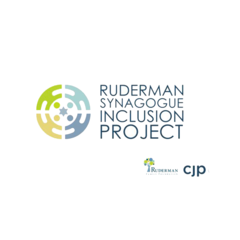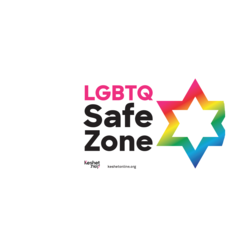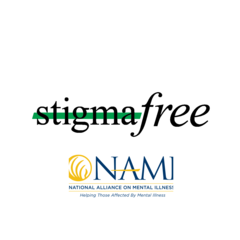Yom Kippur 2008
I want you to know that after Rabbi Brown’s wonderful sermon last night, I am updating my status on Facebook as we speak.
When Rabbi Jaffe asked me to share my Jewish journey with you today, my first impulse was to say no. I am someone who has constantly ricocheted between belief and disbelief. I am a person whose personal history has both denied the presence of a loving creator and confirmed His, Her or Its existence. As we said last night at Kol Nidre, “Who is fit for such a task? “.
^pMy reluctance also comes from my belief that that with the exception of our previous speaker, Sue Tafler, listening to someone else’s story of personal and spiritual growth is like watching your neighbor’s slideshow of his vacation in Lexington. You can’t see it in just one weekend but why would you want to? My hope is that listening to my story can be seen as congregational penance. If there were any justice in the world, you all will be able to knock a few hours off your fast.
Early Queens
I was born in a small nook on the east coast that some of you might have heard called Queens. I am the product of a mixed marriage: my mother came from a traditional background and my father was a civil rights lawyer who came from a Jewish socialist background. He was proud of being Jewish but hated organized religion.
The third lead character in this drama was my maternal grandfather whose life really revolved around his role in his little shul in Lynbrook where his knowledge of Hebrew, his ability to read Torah and the quality of his voice gave him respect and solace in an otherwise bewildering world.
Despite his open hostility to my father who I loved and admired, I loved going to shul with him and being present in his world. He would attack my father openly. “Your father eats traife!” I would defend my father: “ He does not, maybe a little pork now and then”. Yet he was the one who taught me my maftir when I couldn’t get it.
And I loved being in my father’s house of social justice that was filled music and ideas and his books which were all by these guys named Mailer, and Roth, Bruce Jay Friedman, Malumud and Richler, all looking at the Jew’s role in modern America.
The irony is that today is Yom Kippur and typically my grandfather would chant the haftorah we heard this morning by Isaiah which is filled with the ideals by which my father lived his entire life. The two men could not have been more far apart and yet they read from the same page of Torah.
My mother is like a bridge between these two houses, a lover of books who has an inchoate sense of spirituality. In my parents house she was like a Marrano lighting candles and keeping kosher. I would go with her to shul on Yom Kippor and my dad would be making lunch for my siblings.
Education and Career
We belonged to a conservadox shul and my teachers were all yeshiva bocam (boys) from Brooklyn who looked down on their suburban pupils because many of our parents rode to shul. This is an extremely effective teaching technique. One of my teachers denied the existence of dinosaurs, which was interesting since my favorite museum was the Museum of Natural History.
Somehow I survived that phase and made it to the classroom of the HebrewHigh School taught by an amazing person named Robert Hirt (now a VP at YeshivaUniversity).
Rabbi Hirt would sometimes bring in his college roommate to talk about Judaism as a means to create a life that makes sense. His roommate’s name was Yitz Greenberg (his name still is Yitz Greenberg but they are no longer roommates) and I stayed with Rabbi Hirt until I went away to college. Years latter when I got my Hillel job I called him up at YU. He said, “I remember you Mendales- you would bring your tifilin but you wouldn’t put it on…” When I returned to college at the University of Texas after successfully evading rock stardom as a musician in Austin, Jim Kessler, the Rabbi at Hillel who knew me from courses I had taken in Jewish studies, suggested I apply to a scholarship that paid for graduate school and had a job at the end of the rainbow in the Jewish federation movement.
I didn’t think I had a chance because I didn’t know what a federation was but finalists were interviewed in New York and it was time to see my parents.
They sent me for a masters program at CaseWesternUniversity with an internship at the Cleveland Jewish Federation (the West Point of the Jewish Federation movement) and a joint program at the Hebrew Union College School of Jewish Communal Studies. (That shows you how intelligent I am, I summered in LA and wintered in Cleveland.) It was an exciting time to be at HUC, lots of change and exciting ideas. My rabbinic colleagues were suddenly wearing kepot and talisim; my strange after school education from the crazy yeshiva guys and my father’s books was suddenly relevant.
I had my first crisis of faith studying the Holocaust, which was taught by Abe Zygelbaum, the brother of the polish journalist who committed suicide when the world didn’t believe his tale of death camps in Poland. I could not find god in a catastrophe that subsumed one million children… And then I found the diary of Emil Ringelblum, the historian of the Warsaw ghetto, which to me demonstrated the triumph of humanity and humor in the face of humiliation and indescribable suffering. And I encountered Victor Frankel whose work Man’s Search for Meaning demonstrated that those who found a sense of purpose in the face of events that would deny them everything else were the people who leaped over that pit that Rabbi Jaffe referred to today.
My first job took me to Boston and CJP. It was a difficult transition to becoming a professional Jew, coupled with a difficult first marriage. I emerged from both institutions with a wonderful son and moved into my current job in Hillel.
I got the marriage thing right the second time with Deb and had two additional children (one of whom is cringing in his seat) as I slept-walked through the world of intense intramural politics that characterizes academia and the Jew biz; politics which would put the music business to shame. I joined Isaiah and discovered the minyin where I felt immediately at home. I still didn’t put on tifilin.
A look at the sunset
It was hard to find god anywhere when Deb took ill with a glioblastoma nine years ago.
For the two years of her treatment, remission and reoccurrence, I would drive around instead of going to the office. I would make myself look at the sunsets and at the changing leaves, which continued despite what was occurring in my house.
I was determined that the boys would not be cheated from the joy of childhood; we filled the same house of sickness and impending death with music and food and beloved friends.
And I found god in the loving kindness of this congregation and my minyin, in the family of friends in Bedford and New England and California and Texas, and in Daniel Groper and Ruth Greenberg, Susan Marx and my dear friend Rabbi Jaffe. I found a sense of purpose in taking care of my family and a new sense of dedication to my work. It was a gift that came unbidden from a tragedy.
Conclusion
I now have two older boys beginning their college years, one in Israel and one in that other Jerusalem, San Diego. There are four more years of high school with Ez and then I need to come to terms with my own life. I am hoping to become shallow.
It is still hard for me to accept a god that requires constant praise. I continue to find the divine in the interaction of relationships, tradition, the intellect, music and the natural world. And more to the point, while politically I don’t believe in intelligent design, intuitively I accept it. Strangely enough, my favorite lines in the Sabbath service continues to be “We sing your praise for our lives which are in your hand, for our souls which are in your keeping, for the signs of your presence we encounter ever day”.
Yom Kippur, October 9, 2008





